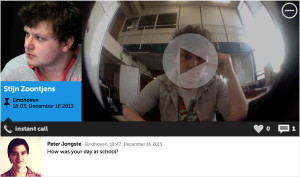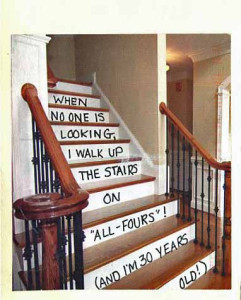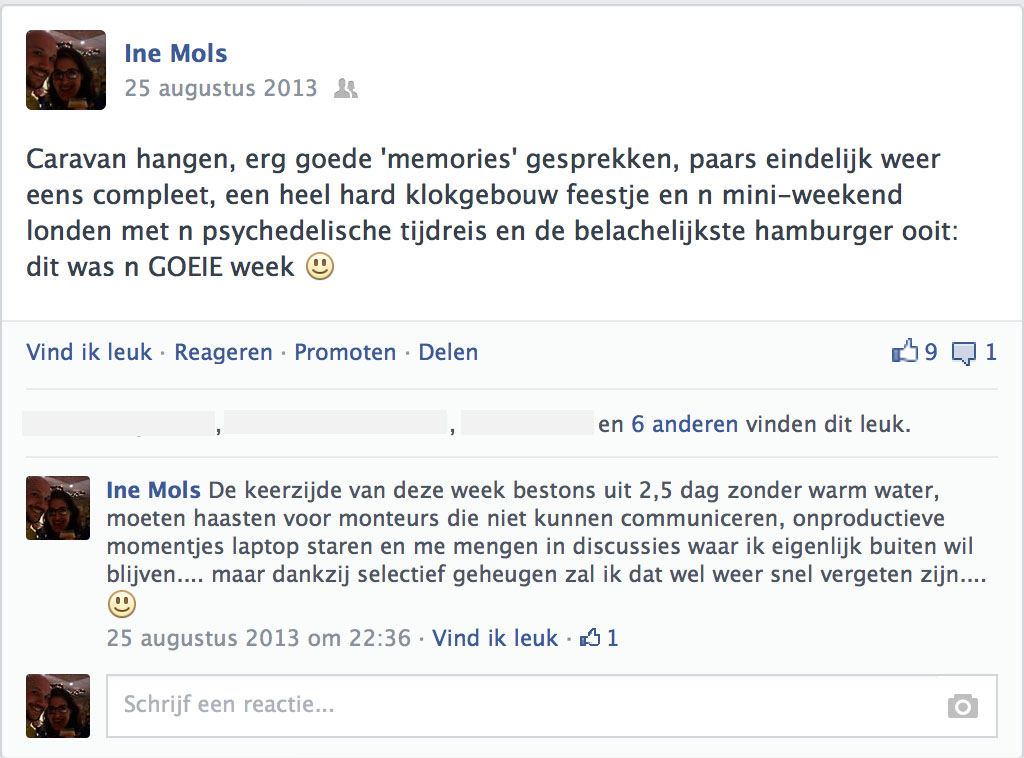Let me be honest with you: for the biggest part of last week I had no idea what to write this blog about. But sometimes a theme simply emerges; that’s why I write about honesty today.
Last week, Mendel shared a great collection of honest Instagram images. In the blog, Drew Hoolhorst explains that Instagram didn’t suddenly change us all into photographers who see the beauty in simple things but rather into giant liars. His collection of honest Instagrams nicely shows how pictures without context can easily be misinterpreted. We think somebody is making a beautiful beach walk but in stead feels lonely and cold.

However, this contrast between reality and images is not caused by accident; people often intentionally display an unrealistic positive image of themselves online. As a survey by the Huffington Post showed we feel pressured to portray our ideal selves online for everyone to see. 40 percent of social media users admitted they often post things to improve their image.

This missing link between our offline and online identities was also seen by one of Industrial Design’s bachelor students, Stijn Zoontjens, he proposes an alternative social network concept: Trigger. The concept focusses on capturing and sharing more everyday aspects of our life, being open and honest to a small network to share how we are really doing. This could result in a social network that better completes our “offline-self”.

Wether online or offline, everybody has secrets. I spotted a great offline representation of these secrets at a coffee table in our faculty: the book Briefgeheimen: postcard secrets. I’ve loved this project every since I saw it in the newspaper NRC years ago: a project to give people the opportunity to send in their secrets on a postcard. Over the years thousands of secrets have been collected. Some are shocking, very serious or downright disgusting but some display the smallest, innocent secrets. I love to find these little revelations, such as the person who admits to walk up the stairs on “all-fours” occasionally, and see which part of themselves people never display but finally share, anonymously.
While looking through the book, I suddenly connected the dots: all these concepts show the way we struggle with reflecting our identities. The concepts raise the question how honest we are or want to be on our social networks. Of course this is not unique to online social interactions; in our everyday conversations we say the same three words each time “I am fine”, even if we don’t always mean them. But somehow the online variation of social interactions seems to emphasise exactly this aspect of our interaction; it is a one-to-many interaction and therefor often not honest in showing our everyday lives.
This might not only effect the way others see us, or the way others remember us, but also the way we remember ourself. What will the effect of (dis)honesty in our media be on our own memories?
 I once commented on my own Facebook post about an awesome week to explain the down-sides of the same week; trying to slightly break this unrealistic stream of positivism I saw on my own wall as well. Although I say in the post “I’ll probably forget about these negative aspects due to selective memory”, the post has had the opposite effect: I now remember these aspects as well. I remember the small annoying things about that week that I most often forget.
I once commented on my own Facebook post about an awesome week to explain the down-sides of the same week; trying to slightly break this unrealistic stream of positivism I saw on my own wall as well. Although I say in the post “I’ll probably forget about these negative aspects due to selective memory”, the post has had the opposite effect: I now remember these aspects as well. I remember the small annoying things about that week that I most often forget.
But do we want to remember both sides of the story? How honest do we want our memories to be? Do we prefer remembering the good times? Should we capture our daily experiences through rose-tinted glasses and make sure our media reflect only the best of our lives? Or do we prefer a more honest archive for ourselves while displaying the positive collection to the public?
I like your blog, Ine. You wrote down what we all see happen in social media. Considering your last sentences: I think it’s not a question of preference for a more honest archive. We are not able to influence the moments of capture. Positive as well as negative experiences will be stored, if we like it or not. It’s our mood that will determine which memory traces will be recalled at a certain moment. But of course, what we do and do not display on social media represents the way we want others to see us.